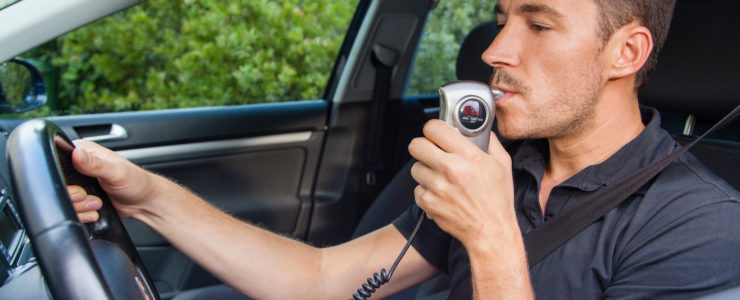
Driving under the influence (DUI) is a serious criminal offense in Nevada, and the stakes become even higher for someone facing charges for a second DUI offense. The state has implemented strict laws that come with severe penalties, including expensive fines, extended jail time, and stringent conditions.
With so much at risk, it’s essential to have a thorough understanding of what a second DUI offense could entail, how it varies from other DUI charges, and the potential defenses available.
If you or someone you know is facing a second DUI offense in Nevada, we can help. Ticket Busters is a Las Vegas-based law firm that specializes in DUI defense and has helped countless clients navigate through the complex legal system in Nevada. Our team of experienced attorneys is well-versed in Nevada’s DUI laws and can provide you with the best possible defense for your case.
What Qualifies as a Second DUI Offense in Nevada?
A second DUI offense in Nevada occurs when a person is apprehended and charged for operating a vehicle under the influence of drugs or alcohol for the second time within a period of seven years.
According to Nevada laws, driving with a blood alcohol concentration (BAC) of 0.08% or higher or having any trace of an illegal drug in the system while driving qualifies as a DUI. Field sobriety tests, breath, blood, or urine samples are used to determine a person’s BAC.
Understanding the 7-Year Rule in Nevada
In Nevada, a legal doctrine known as the “7-year rule” governs how subsequent DUI offenses are treated. If a person commits a second DUI within seven years of their first offense, they will face harsher penalties than if it had occurred more than seven years after the first conviction.
For example, if someone is arrested for a DUI in 2020 and had a prior DUI conviction from 2018, it would be considered as their second DUI offense. But if their first DUI conviction was from 2013, the 2020 offense would be considered a first-time DUI since it falls outside the seven-year period.
In another example, Alex was first arrested and convicted for a DUI offense in Nevada in 2005. Four years later, in 2009, Alex was convicted again for a second DUI offense. After a significant period of time, Alex is arrested again in 2017 for a DUI charge.
Even though Alex now has a total of three DUI offenses on his record, the second and third DUIs have an eight-year gap separating the two offenses.
Therefore, under Nevada’s DUI laws, the 2017 offense would be treated as a first DUI offense, not a second or third.
How Does a Second DUI Offense Differ From Other DUI Charges?
While all DUI offenses are punishable by law, a second DUI offense carries harsher penalties than a first-time offense. For instance, the fines are higher, and mandatory jail time is increased significantly. Additionally, the offender may also face a longer license suspension period and other strict conditions, such as attending alcohol education programs or installing an ignition interlock device in their vehicle.
Moreover, a more important distinction is that a second DUI offense is only charged as a misdemeanor in Nevada if it’s a “simple DUI”—which means there were no aggravating factors present. However, if aggravating factors, such as causing bodily harm or having a child in the vehicle at the time of the offense, are involved, it can be charged as a felony with even more severe penalties.
Comparing First and Second DUI Offenses
While both first and second DUI offenses are misdemeanors, penalties for a second DUI offense are substantially more severe. This includes increased fines, extended license suspension or revocation, higher insurance rates, mandatory jail time, compulsory community service hours, and potentially, the installation of an ignition interlock device (IID).
| Criteria | 1st DUI | 2nd DUI |
|---|---|---|
| Charge | Misdemeanor | Misdemeanor |
| Jail time | 2 days to 6 months | 10 days to 6 months |
| Fines | $400 to $1000 | $750 to $1000 |
| DUI Class | Required | Required |
| License Revocation | 6 Months | 1 Year |
| Victim Impact Class | Required | Required |
| Ignition Interlock Device | Possible | Required |
This table underscores the seriousness of DUI charges and emphasizes the importance of responsible behavior when it comes to alcohol consumption and driving.
Similar to the first offense, DUI probation is a possibility for second DUI offenders.
Probation may include strict conditions, such as avoiding alcohol and drugs, attending mandatory DUI classes, participating in community service, and staying out of trouble with the law.
Comparing a Second DUI with a Third DUI Offense
A third DUI offense in Nevada is considered a felony, which carries more severe penalties than a misdemeanor. Unlike a second DUI offense, where the offender may receive probation and avoid jail time, a third DUI conviction will almost certainly result in imprisonment.
Moreover, the fines are significantly higher, and the offender’s license may be revoked for up to three years. Additionally, unlike the mandatory 10 days to six months of jail time for a second DUI offense, a third DUI offender must serve at least one year in prison.
However, the most significant consequence of a third DUI offense is that it becomes part of the offender’s permanent record and can impact future job prospects, housing opportunities, and even child custody hearings.
This is because felony DUI convictions in Nevada cannot be sealed. It remains in your record forever.
Potential Defenses for Second DUI Offense in Nevada
While the exact defenses may vary depending on the circumstances of the case, common defenses to DUI charges generally include challenging the accuracy of breath or blood tests, questioning the legality of the traffic stop, and disputing whether the defendant was actually driving or in control of the vehicle at the time of arrest.
Challenging the Accuracy of Breath or Blood Tests
One common defense strategy involves challenging the accuracy of breathalyzer or blood tests used to measure BAC. These tests can sometimes produce inaccurate results due to improper calibration of the testing equipment, errors in the administration of the test, or physiological factors that can affect BAC readings. For instance, a person with a medical condition like acid reflux or diabetes might produce falsely high BAC readings. This is one of the prevailing DUI myths wherein these tests are 100%
An example might involve a defendant who was charged with a second DUI based on a breathalyzer test result showing a BAC above the legal limit. The defense attorney could argue that the breathalyzer had not been properly calibrated, casting doubt on the accuracy of the test result. If the attorney can provide sufficient evidence to support this claim, it may be possible to have the test results excluded from evidence, potentially leading to a dismissal or reduction of the charges.
Questioning the Legality of the Traffic Stop
Another common defense strategy is to question the legality of the traffic stop that led to the DUI arrest. Under the Fourth Amendment, police officers must have reasonable suspicion to stop a vehicle. If the officer cannot provide a valid reason for the traffic stop, any evidence obtained during the stop, including breath or blood test results, may be deemed inadmissible in court.
For example, a defendant charged with a second DUI could argue that the police officer did not have reasonable suspicion to initiate the traffic stop. If the defense attorney can successfully argue that the stop was unlawful, the court may exclude the evidence obtained during the stop, which could result in the charges being dropped or reduced.
Remember, each case is unique, and the effectiveness of these defenses will depend on the specific circumstances of your case. Therefore, it’s crucial to consult with an experienced DUI defense attorney if you’re facing a second DUI charge in Nevada.
Hiring A DUI Attorney: Why It Is Important
When facing a second DUI charge, having an experienced legal representative is crucial. A skilled DUI attorney can help navigate the complex legal system, potentially reduce charges, and represent you in court effectively.
A DUI attorney’s role extends beyond the court representation. They kick off their assistance right from the arrest phase, advising you on your rights and obligations. They scrutinize the details of your case, looking for inaccuracies or inconsistencies in the police report or any evidence that may be used against you.
Your attorney will represent you at DMV hearings as well, and their deep understanding of DUI laws can be instrumental in preventing the suspension of your driver’s license. They can negotiate a plea bargain, reducing your charges to a less severe offense, such as reckless driving, that won’t leave a lasting stain on your record or carry the same hefty penalties as a DUI conviction.
In court, an experienced DUI attorney can effectively challenge the prosecution’s case, raise reasonable doubts about the accuracy of the BAC tests, and question the legality of the initial traffic stop. These strategies can often lead to dismissal of charges or at least a reduction in penalties.
Lastly, if the case does not turn out in your favor, your attorney can help you navigate the post-conviction process, including appealing the court’s decision, negotiating the terms of probation, or even expunging the conviction from your record, if possible. All these factors underscore the importance of hiring a seasoned DUI attorney when facing a second DUI charge. Without their expertise, you are at a significant disadvantage in your battle against these serious charges.
Record Sealing for 2nd DUI Offense
One option available to those convicted of a second DUI offense in Nevada is record sealing. Record sealing is the process of hiding or restricting access to criminal records from public view. It essentially erases the conviction from an individual’s record and can protect their reputation and future job prospects.
In Nevada, you can apply to have your DUI record sealed seven years after the case is closed for a second offense. This means you must wait seven years from the date of your release from custody or discharge from parole or probation, whichever comes last. This waiting period is mandatory and non-negotiable.
The process involves obtaining your criminal records, preparing a petition to seal, sending this petition to various agencies for approval, and finally, if all agencies agree, a judge will order your records sealed. This process is complex and time-consuming, and any mistakes can lead to your petition being denied.
That’s why it’s recommended to hire a DUI attorney with experience in record sealing for second offenses. They can navigate the legal process on your behalf, increasing the chances of a successful petition and ensuring that all necessary steps are taken to seal your record correctly.
Facing DUI Charges? Ticket Busters Can Help
If you are facing a second DUI charge in Nevada, it’s essential to seek legal counsel immediately. The consequences of a second offense can be severe and life-altering, but with the help of an experienced DUI attorney, you may be able to mitigate or even avoid these penalties.
At Ticket Busters, our team of skilled attorneys has decades of experience defending clients against DUI charges. We understand the nuances of Nevada’s DUI laws and can devise a tailored defense strategy for your specific case. Don’t face these charges alone – contact us today for a free consultation and let us fight to protect your rights and future.



